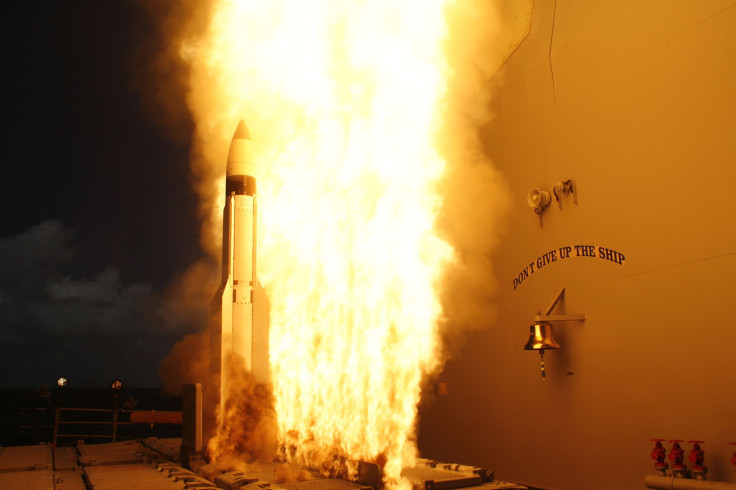US, Japan Say First Test Of Raytheon's New SM-3 Missile A Success

WASHINGTON (Reuters) - The United States and Japan announced on Sunday the first live-fire test of Raytheon Co's new Standard Missile-3 (SM-3) Block IIA missile that is being jointly developed by the two countries for several billion dollars.
Rick Lehner, spokesman for the U.S. Missile Defense Agency, said the test conducted on Saturday from the Point Mugu Sea Range off the coast of California was a success.
Lehner said the United States spent just over $2 billion on the weapons program, while Japan contributed about $1 billion.
The SM-3 IIA is a 21-inch variant of an earlier SM-3 missile, which works with the U.S. Aegis combat system built by Lockheed Martin Corp to destroy incoming ballistic missile threats in space.
Riki Ellison, who heads the non-profit Missile Defense Advocacy Alliance, said: "It is the U.S. Department of Defense's best case of equal funding and engineering shared with an allied country to develop and ... field a new weapon system to better enhance the national security of both nations."
Raytheon said the new SM-3 IIA missile had bigger rocket motors and a more capable kill vehicle that would allow the missile to engage threats sooner and protect larger regions from short- to intermediate-range ballistic missile threats.
Saturday's test evaluated the performance of the missile's nosecone, steering control, and the separation of its booster, and second and third stages. No intercept was planned, and no target missile was launched, said U.S. and company officials.
"The success of this test keeps the program on track for a 2018 deployment at sea and ashore," said Taylor Lawrence, president of Raytheon's missile systems business.
Ellison said three more years of testing were planned for the new missile before it was put to use on U.S. Navy Aegis ships, Japan's Kongo ships, and at land-based Aegis Ashore sites in Poland and Romania.
© Copyright Thomson Reuters 2024. All rights reserved.





















